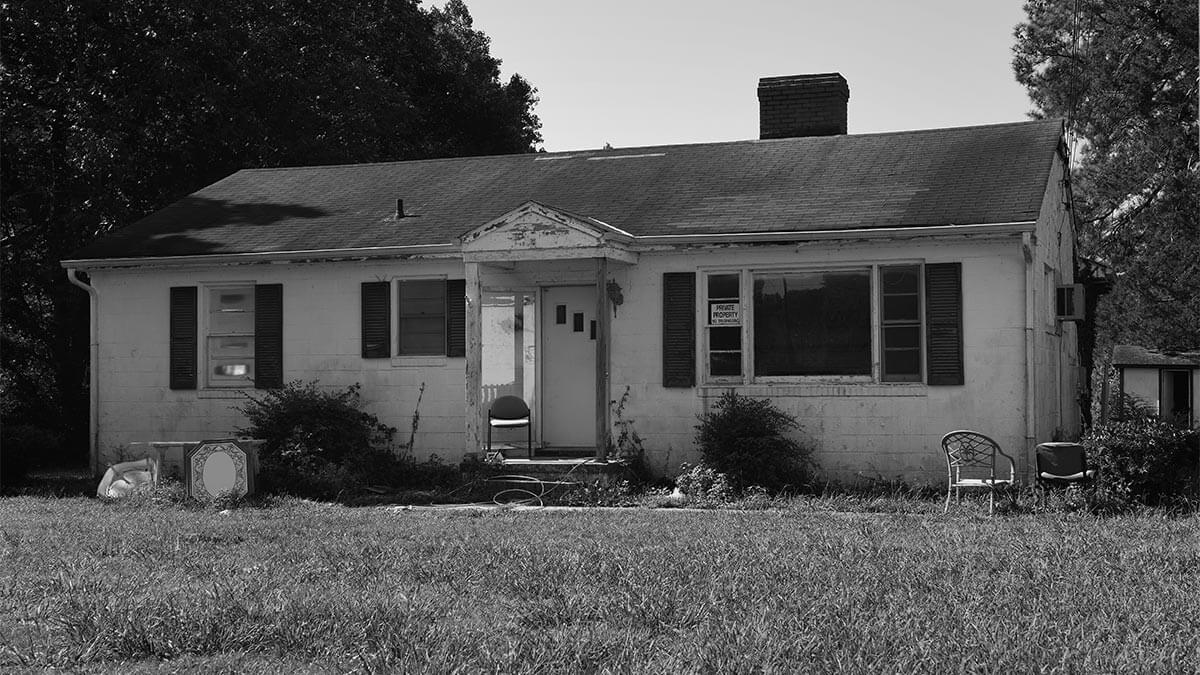Facing foreclosure can be an overwhelming and emotional experience. In Colorado, where both judicial and non-judicial foreclosure processes exist, understanding your options is the first step in regaining control of the situation. Whether you’re struggling with missed payments or unexpected financial setbacks, knowing how foreclosure works and the resources available can make all the difference.
The stakes are high. A foreclosure doesn’t just mean losing your home—it can also negatively affect your credit and future financial opportunities. But here’s the good news: there are solutions to prevent or even stop foreclosure if you act quickly.
If you’re facing foreclosure, iBuyer.com is here to help. Our experienced team offers fast, efficient solutions tailored to your unique situation, providing the support you need to navigate this challenging time. Reach out today and take the first step toward securing your financial future.
Compare Cash Offers from Top Home Buyers. Delivered by Your Local iBuyer Certified Specialist.
One Expert, Multiple Offers, No Obligation.
Foreclosure in Colorado
Understanding Foreclosure in Colorado
Foreclosure is the legal process through which a lender attempts to recover the balance of a loan when the borrower can no longer make payments. It often results in the loss of the property, leaving families searching for new housing and dealing with damaged credit. For homeowners in Colorado, understanding the foreclosure process is crucial for identifying opportunities to act.
Judicial vs. Non-Judicial Foreclosures
In Colorado, foreclosures are predominantly non-judicial, meaning they do not require court involvement unless the homeowner files a challenge. This process is faster but offers less time to respond, making early action essential. In contrast, judicial foreclosures require the lender to go through the courts, providing homeowners with additional opportunities to present a defense.
Timelines and Homeowner Rights
Foreclosure timelines can vary, but they typically follow a predictable sequence:
- Notice of Default: After a missed payment, lenders may issue this notice, signaling that the borrower is in default.
- Notice of Election and Demand (NED): In non-judicial foreclosures, the lender files this document with the county, officially starting the process.
- Cure Period: Colorado law provides homeowners with the right to “cure” the default by paying missed payments and fees up to 15 days before the property’s scheduled sale.
- Foreclosure Sale: If the default isn’t resolved, the property is auctioned, often leading to a new owner or reverting to the lender.
Throughout the process, homeowners retain rights, such as the ability to reinstate the loan or negotiate alternatives with the lender. These rights, however, diminish as the process advances.
Strategies to Prevent Foreclosure
Foreclosure doesn’t have to be inevitable. Acting quickly and exploring available strategies can help you keep your home or minimize financial damage. Here are proven methods to prevent foreclosure in Colorado:
1. Open Communication with Lenders
One of the most critical steps is maintaining communication with your lender. Ignoring their calls or notices only accelerates the process.
- Contact Early: If you’re behind on payments, reach out to your lender as soon as possible.
- Discuss Options: Many lenders offer programs like forbearance, which temporarily reduces or pauses payments, or repayment plans to help you catch up.
- Show Willingness to Cooperate: Demonstrating good faith can encourage lenders to work with you rather than pursue foreclosure.
2. Loan Modification
A loan modification adjusts the terms of your mortgage to make monthly payments more affordable. This may involve:
- Reducing the interest rate.
- Extending the loan term.
- Adding missed payments to the end of the loan.
Eligibility: Most lenders require proof of financial hardship and your ability to make modified payments. The application process typically involves submitting financial documents and a hardship letter explaining your situation.
3. Refinancing
Refinancing involves taking out a new loan to replace your existing mortgage. This strategy works best if your credit score is stable and you have equity in your home.
Pros:
- Lower monthly payments with better interest rates.
- Consolidation of missed payments into a new loan.
Cons:
- Requires a qualifying credit score and sufficient equity.
- May involve upfront costs, which can be challenging during financial struggles.
4. Bankruptcy
Filing for bankruptcy can temporarily halt foreclosure proceedings and offer breathing room to reorganize your finances.
- Chapter 7: This liquidates assets to pay debts and delays foreclosure, though it may not save your home.
- Chapter 13: Enables you to create a repayment plan to catch up on missed mortgage payments while keeping your home.
Consult a bankruptcy attorney to understand which option is right for you.
5. Short Sale
A short sale involves selling your home for less than the owed amount, with the lender’s approval. This option can:
- Prevent foreclosure from appearing on your credit report.
- Provide an alternative if staying in your home isn’t feasible.
Keep in mind that short sales may still impact your credit and future borrowing abilities, but the effects are less severe than foreclosure.
6. Deed in Lieu of Foreclosure
In this option, you voluntarily transfer ownership of your home to the lender. It prevents foreclosure but comes with its own set of pros and cons:
- Benefits: Avoids the public foreclosure process and its associated stigma.
- Drawbacks: You lose your home and may still be liable for any deficiency balance unless explicitly waived by the lender.
Seeking Professional Assistance
Navigating foreclosure is challenging, but you don’t have to do it alone. Professional assistance can provide clarity and help you make informed decisions about your next steps. Below are key resources that can guide you through this difficult process:
1. Housing Counseling Services
Certified housing counselors offer free or low-cost advice to help you understand your options. These professionals:
- Provide personalized recommendations tailored to your financial situation.
- Help negotiate with lenders to explore solutions like loan modifications or forbearance.
- Assist in creating a budget to manage your finances better.
Look for HUD-approved housing counseling agencies for reliable and trustworthy support.
2. Legal Assistance
A foreclosure attorney can help you protect your rights and identify legal defenses. They can:
- Review your mortgage documents to ensure the lender followed proper procedures.
- Challenge improper notices or fraudulent claims in court.
- Advise on bankruptcy and other legal options to halt foreclosure.
Legal support is particularly valuable in judicial foreclosures or if you’re facing a complex case.
3. Financial Advisors
Financial advisors can help you take a broader view of your financial health. They assist with:
- Developing a debt management plan to balance your obligations.
- Exploring refinancing or consolidation strategies to stabilize your finances.
- Identifying resources or benefits that may ease your financial burden.
Working with an advisor can provide long-term strategies to avoid future financial crises.
Reilly’s Two Cents
Drawing from my years of experience in real estate, I’ve seen firsthand how overwhelming foreclosure can be for homeowners. But I’ve also seen how proactive steps and the right mindset can turn things around. Here are my top tips for managing this challenge effectively:
Stay Proactive
The earlier you act, the more options you’ll have. Don’t wait until foreclosure proceedings are well underway. Instead:
- Respond promptly to notices from your lender.
- Open every piece of mail and track important deadlines.
- Stay in regular communication with your lender to show your willingness to resolve the issue.
Organize Financial Documents
Keeping your financial documents in order can make discussions with lenders or advisors much smoother. Gather:
- Mortgage statements and payment records.
- Notices or letters from your lender.
- A breakdown of your income, expenses, and any financial hardships.
Having these ready demonstrates preparedness and helps professionals guide you more effectively.
Explore All Options
Foreclosure is not a one-size-fits-all process, and there are multiple ways to address it. Educate yourself about:
- Loan modifications, refinancing, and short sales.
- Legal options like bankruptcy.
- Alternatives that might allow you to stay in your home or transition smoothly.
Understanding your choices helps you make informed, confident decisions.
Seek Support
Don’t go through this alone. Lean on trusted professionals like housing counselors, real estate experts, or attorneys. Support groups and community resources can also provide emotional and practical help. Remember, you’re not the first to face foreclosure, and many resources exist to guide you.
Conclusion
Facing foreclosure is a daunting experience, but it’s not a dead end. By understanding the process and exploring your options early, you can take control of your financial situation and protect your future. Whether you aim to stay in your home or transition smoothly, the key is to act quickly and seek support.
From loan modifications and refinancing to short sales or legal assistance, there’s a solution for every situation. Professional guidance from housing counselors, attorneys, or financial advisors can provide clarity and help you make the best decision for your circumstances.
Remember, you don’t have to face this challenge alone. If foreclosure is on the horizon, reach out to iBuyer.com for fast and tailored solutions. Together, we can navigate this tough time and help you move forward with confidence.
Instant Valuation, Confidential Deals with a Certified iBuyer.com Specialist.
Sell Smart, Sell Fast, Get Sold. No Obligations.
FAQ
In Colorado, the foreclosure timeline varies but generally includes a Notice of Default after a missed payment, followed by a Notice of Election and Demand (NED) that officially starts the process. Homeowners have a cure period to catch up on payments up to 15 days before the foreclosure sale, which typically occurs within 110-125 days of the NED.
Yes, paying the past-due amount, including any fees and penalties, can stop foreclosure during the cure period. If you’re unsure about the amount or process, contact your lender for a detailed breakdown of what’s owed.
Filing for bankruptcy can temporarily halt foreclosure. Chapter 7 bankruptcy delays the process but may not save your home, while Chapter 13 bankruptcy allows you to create a repayment plan to catch up on missed payments and keep your home. Consulting a bankruptcy attorney is essential to determine the best option for your situation.
A short sale impacts your credit but is generally less damaging than a foreclosure. While it shows as a settled debt, it may lower your score and affect your ability to secure future loans. The exact impact depends on your overall credit profile.
Yes, programs like HUD’s housing counseling services and the Making Home Affordable initiative can help. Colorado also offers state-specific resources to guide homeowners facing foreclosure. Reach out to HUD-approved counselors for more information.
Reilly Dzurick is a seasoned real estate agent at Get Land Florida, bringing over six years of industry experience to the vibrant Vero Beach market. She is known for her deep understanding of local real estate trends and her dedication to helping clients find their dream properties. Reilly’s journey in real estate is complemented by her academic background in Public Relations, Advertising, and Applied Communication from the University of North Florida.




